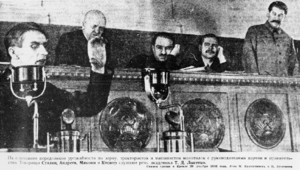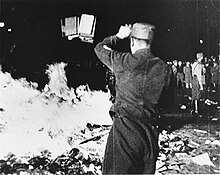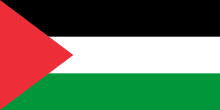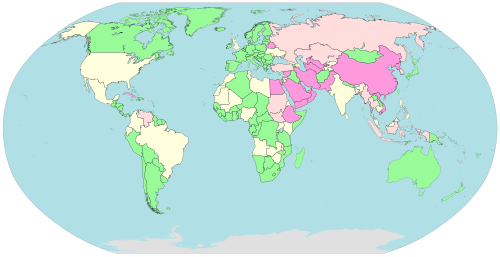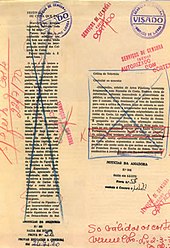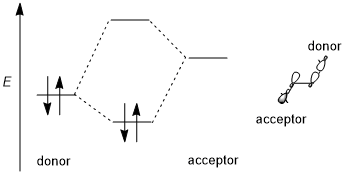From Wikipedia, the free encyclopedia
Academic freedom
is the conviction that the freedom of inquiry by faculty members is
essential to the mission of the academy as well as the principles of
academia,
and that scholars should have freedom to teach or communicate ideas or
facts (including those that are inconvenient to external political
groups or to authorities) without being targeted for repression, job
loss, or imprisonment.
Academic freedom is a contested issue and, therefore, has limitations in practice. In the
United States, for example, according to the widely recognized "1940 Statement on Academic Freedom and Tenure" of the
American Association of University Professors,
teachers should be careful to avoid controversial matters that are
unrelated to the subject discussed. When they speak or write in public,
they are free to express their opinions without fear from institutional
censorship or discipline, but they should show restraint and clearly
indicate that they are not speaking for their institution. Academic
tenure
protects academic freedom by ensuring that teachers can be fired only
for causes such as gross professional incompetence or behavior that
evokes condemnation from the academic community itself.
Historical background

Michael Polanyi argued that academic freedom was a fundamental necessity for the production of true knowledge.
Although the notion of academic freedom has a long implicit history (
Leiden University, founded in 1575, birthplace of the modern concept),
the idea was first clearly formulated in response to the encroachments
of the totalitarian state on science and academia in general for the
furtherance of its own goals. For instance, in the
Soviet Union, scientific research was brought under strict political control in the 1930s. A number of research areas were declared "
bourgeois pseudoscience" and forbidden, notably
genetics (see "
Lysenkoism") and sociology. The trend toward subjugating science to the interests of the state also had proponents in the West, including the influential
Marxist John Desmond Bernal, who published
The Social Function of Science in 1939.
In contrast to this approach,
Michael Polanyi
argued that a structure of liberty is essential for the advancement of
science – that the freedom to pursue science for its own sake is a
prerequisite for the production of knowledge through peer review and the
scientific method.
In 1936, as a consequence of an invitation to give lectures for the Ministry of Heavy Industry in the USSR, Polanyi met
Bukharin, who told him that in socialist societies all scientific research is directed to accord with the needs of the latest
five-year plan. Demands in Britain for centrally planned scientific research led Polanyi, together with
John Baker, to found the influential
Society for Freedom in Science.
The Society promoted a liberal conception of science as free enquiry
against the instrumental view that science should exist primarily to
serve the needs of society.
In a series of articles, re-published in
The Contempt of Freedom (1940) and
The Logic of Liberty (1951), Polanyi claimed that co-operation amongst scientists is analogous to the way in which
agents co-ordinate themselves within a
free market. Just as consumers in a free market determine the value of products, science is a
spontaneous order
that arises as a consequence of open debate amongst specialists.
Science can therefore only flourish when scientists have the liberty to
pursue truth as an end in itself:
[S]cientists, freely making their own choice of problems and pursuing
them in the light of their own personal judgment, are in fact
co-operating as members of a closely knit organization.
Such self-co-ordination of independent initiatives leads to a
joint result which is unpremeditated by any of those who bring it about.
Any attempt to organize the group ... under a single authority
would eliminate their independent initiatives, and thus reduce their
joint effectiveness to that of the single person directing them from the
centre. It would, in effect, paralyse their co-operation.
Rationale
Proponents
of academic freedom believe that the freedom of inquiry by students and
faculty members is essential to the mission of the academy. They argue
that academic communities are repeatedly targeted for repression due to
their ability to shape and control the flow of information. When
scholars attempt to teach or communicate ideas or facts that are
inconvenient to external political groups or to authorities, they may
find themselves targeted for public vilification, job loss,
imprisonment, or even death. For example, in North Africa, a professor
of public health discovered that his country's infant mortality rate was
higher than government figures indicated. He lost his job and was
imprisoned.
The fate of
biology in the
Soviet Union is also cited as a reason why society has an interest in protecting academic freedom. A Soviet biologist
Trofim Lysenko
rejected Western science – then focused primarily on making advances in
theoretical genetics, based on research with the fruit fly (
Drosophila melanogaster) – and proposed a more socially relevant approach to farming that was based on the
collectivist principles of
dialectical materialism. (Lysenko called this "
Michurinism", but it is more popularly known today as
Lysenkoism.)
Lysenko's ideas proved appealing to the Soviet leadership, in part
because of their value as propaganda, and he was ultimately made
director of the Soviet Academy of Agricultural Sciences. Subsequently,
Lysenko directed a purge of scientists who professed "harmful ideas",
resulting in the expulsion, imprisonment, or death of hundreds of Soviet
scientists. Lysenko's ideas were then implemented on collectivised
farms in the Soviet Union and China. Famines that resulted partly from
Lysenko's influence are believed to have killed 30 million people in
China alone.
AFAF (
Academics For Academic Freedom) of the
United Kingdom
is a campaign for lecturers, academic staff and researchers who want to
make a public statement in favour of free enquiry and free expression.
Their statement of Academic Freedom has two main principles:
- that academics, both inside and outside the classroom, have unrestricted liberty to question and test received wisdom and to put forward controversial and unpopular opinions, whether or not these are deemed offensive, and
- that academic institutions have no right to curb the exercise of this freedom by members of their staff, or to use it as grounds for disciplinary action or dismissal.
AFAF and those who agree with its principles believe that it is
important for academics to be able not only to express their opinions,
but also to put them to scrutiny and to open further debate. They are
against the idea of telling the public
Platonic "noble lies" and believe that people need not be protected from radical views.
For academic staff
The
concept of academic freedom as a right of faculty members is an
established part of most legal systems. Different from the United
States, where academic freedom is derived from the guarantee of free
speech under the
First Amendment,
constitutions of other countries (and particularly of civil law
jurisdictions) typically grant a separate right to free learning,
teaching, and research.
Canada
During the interwar years (cir. 1919–1939) Canadian academics were
informally expected to be apolitical, lest they bring trouble to their
respective universities which, at the time, were very much dependent
upon provincial government grants. As well, many Canadian academics of
the time considered their position to be remote from the world of
politics and felt they had no place getting involved in political
issues. However, with the increase of socialist activity in Canada
during the
Great Depression, due to the rise of
social gospel
ideology, some left-wing academics began taking active part in
contemporary political issues outside the university. Thus, individuals
such as
Frank H. Underhill at the
University of Toronto and other members or affiliates with the
League for Social Reconstruction
or the socialist movement in Canada who held academic positions, began
to find themselves in precarious positions with their university
employers. Frank H. Underhill, for example, faced criticism from within
and without academia and near expulsion from his university position for
his public political comments and his involvement with the League for
Social Reconstruction and the
Co-Operative Commonwealth Federation. According to
Michiel Horn
this era marked, "...a relaxation of the unwritten controls under which
many Canadian professors had previously worked. The nature of the
institutions, natural caution and professional pre-occupation had before
the Depression inhibited the professoriate. None of these conditions
changed quickly, but even at the provincial universities there were
brave souls in the 1930s who claimed, with varying success, the right
publicly to discuss controversial subjects and express opinions about
them."
United Kingdom
The
1988 Education Reform Act established the legal right of academics in
the UK 'to question and test received wisdom and to put forward new
ideas and controversial or unpopular opinions without placing themselves
in jeopardy of losing their jobs or the privileges they may have'.
The principles of academic freedom are also articulated in the statutes
of most UK universities. Concerns have been raised regarding threats to
academic freedom in the UK, including the harassment of feminist
academics. In response to such concerns, the Equality and Human Rights Commission has issued guidance.
France
Professors at public
French universities and researchers in public research laboratories are expected, as are all
civil servants,
to behave in a neutral manner and to not favor any particular political
or religious point of view during the course of their duties. However,
the academic freedom of university
professors is a fundamental principle recognized by the laws of the Republic, as defined by the
Constitutional Council; furthermore, statute law declares about
higher education
that "teachers-researchers (university professors and assistant
professors), researchers and teachers are fully independent and enjoy
full
freedom of speech in the course of their
research and
teaching
activities, provided they respect, following university traditions and
the dispositions of this code, principles of tolerance and objectivity". The nomination and promotion of professors is largely done through a process of
peer review rather than through normal administrative procedures.
Germany
The
German Constitution (
German:
Grundgesetz)
specifically grants academic freedom: "Art and science, research and
teaching are free. Freedom of teaching does not absolve from loyalty to
the constitution" (Art. 5, para. 3). In a tradition reaching back to the
19th century, jurisdiction has understood this right as one to teach (
Lehrfreiheit), study (
Lernfreiheit), and conduct research (
Freiheit der Wissenschaft) freely, although the last concept has sometimes been taken as a cover term for the first two.
Lehrfreiheit
embraces the right of professors to determine the content of their
lectures and to publish the results of their research without prior
approval.
Since professors through their
Habilitation receive the right to teach (
Latin:
venia docendi) in a particular academic field, academic freedom is deemed to cover at least the entirety of this field.
Lernfreiheit means a student's right to determine an individual course of study. Finally,
Freiheit der Wissenschaft permits academic self-governance and grants the university control of its internal affairs.
Mauritius
In
Mauritius the academic staff have the following rights, which are stated
in the Chapter II Constitution of Mauritius: the protection of Freedom
of Conscience, Protection of Freedom of Expression, Protection of
Freedom of Assembly and Association, Protection of Freedom to Establish
schools and the Protection from Discrimination. In a 2012 paper on the
University of Mauritius
the author states that although there are no records of abuse of human
rights or freedom of the state "subtle threats to freedom of expression
do exist, especially with regard to criticisms of ruling political
parties and their leaders as well as religious groups." The government of Mauritius endorses the practice of academic freedom in the tertiary institutions of the country. Academic freedom became a public issue in May 2009 when the
University of Mauritius
spoke out against the previous vice chancellor Professor I. Fagoonee,
who had forwarded a circular sent by the Ministry of Education to
academics.
This circular targeted public officers and required them to consult
their superiors before speaking to the press. According to the paper,
academics were annoyed by the fact that the vice chancellor had endorsed
the circular by sending it to them when it was addressed to public
officers.
In an interview the vice- chancellor stated that while academics were
free to speak to the press they should not compromise university policy
or government policy. An academic spoke to the prime minister and the issue was eventually taken up to parliament. The vice chancellor was then required to step down. In return the government publicly endorsed the practice of academic freedom.
The institutional bureaucracy and the dependence on the state for
funds has restricted the freedom of academics to criticize government
policy. An interview with Dr. Kasenally an educator at the
University of Mauritius expresses her views on academic freedom in the university. The professor states that in 1970s to 1980s the university was at the forefront of debates. But in the 1990s the university stepped away from controversial debates. In 1986, the rights of academics to engage in politics was removed to curtail academic freedom. Academics at the
University of Mauritius
have thus been encouraged to not express their views or ideas
especially if the views oppose those of the management or government.
While there have been no cases of arrests or extreme detention of
academics, there is a fear that it would hinder their career progress
especially at the level of a promotion thus, the academics try to avoid
participating in controversial debates.
Netherlands
In the Netherlands the academic freedom is limited. In November 1985 the
Dutch Ministry of Education published a policy paper titled
Higher Education: Autonomy and Quality.
This paper had a proposal that steered away from traditional education
and informed that the future of higher education sector should not be
regulated by the central government.
In 1992 the Law of Higher Education and Research (Wet op het hoger
onderwijs en wetenschappelijk onderzoek, article 1.6) was published and
became effective in 1993. However, this law governs only certain institutions.
Furthermore, the above provision is part of an ordinary statute and
lacks constitutional status, so it can be changed anytime by a simple
majority in Parliament.
Philippines
The 1987
Philippine Constitution states that, "Academic Freedom shall be enjoyed in all institutions of higher learning." Philippine jurisprudence and courts of law, including the
Philippine Supreme Court
tend to reflexively defer to the institutional autonomy of higher
institutions of learning in determining academic decisions with respect
to the outcomes of individual cases filed in the courts regarding the
abuse of Academic Freedom by professors, despite the individual merits
or demerits of any cases. A closely watched case was the controversial case of
University of the Philippines at Diliman
Sociology Professor Sarah Raymundo who was not granted tenure due to an
appeal by the minority dissenting vote within the faculty of the
Sociology Department. This decision was sustained upon appeal by the
dissenting faculty and Professor Raymundo to the University of the
Philippines at Diliman Chancellor Sergio S. Cao; and though the case was
elevated to
University of the Philippines System President
Emerlinda R. Roman,
Roman denied the appeal which was elevated by Professor Raymundo to the
University's Board of Regents for decision and the BOR granted her
request for tenure. A major bone of contention among the supporters of
Professor Raymundo was not to question the institutional Academic
Freedom of the Department in not granting her tenure, but in asking for
transparency in how the Academic Freedom of the department was
exercised, in keeping with traditions within the University of the
Philippines in providing a basis that may be subject to peer review, for
Academic decisions made under the mantle of Academic Freedom.
South Africa
The South African Constitution of 1996 offers protection of academic freedom and the freedom of scholarly research. Academic freedom became a main principle for higher education by 1997.
Three main threats are believed to jeopardize academic freedom:
government regulations, excessive influence of private sector sponsor on
a university, and limitations of freedom of speech in universities.
There have been an abundance of scandals over the restricted academic freedom at a number of universities in South Africa. The
University of KwaZulu-Natal received fame over its restricted academic freedom and the scandal that occurred in 2007.
In this scandal a sociology lecturer, Fazel Khan was fired in April
2007 for "bringing the university into disrepute" after he released
information to the news media.
According to Khan he had been airbrushed from a photograph in a campus
publication because of his participation in a staff strike last
February.
In light of this scandal the South African Council on Higher Education
released a report stating that the state is influencing academic
freedom. In particular, public universities are more susceptible to political pressure because they receive funds from the public.
New Zealand
Academic
freedom pertains to forms of expression by academic staff engaged in
scholarship and is defined by the Education Act 1989 (s161(2)) as:
a) The freedom of academic staff and students, within the law, to
question and test received wisdom, to put forward new ideas and to state
controversial or unpopular opinions;
b) The freedom of academic staff and students to engage in research;
c) The freedom of the University and its staff to regulate the subject
matter of courses taught at the University;
d) The freedom of the University and its staff to teach and assess
students in the manner they consider best promotes learning; and
e) The freedom of the University through its Council and Vice-Chancellor
to appoint its own staff.
United States
In
the United States, academic freedom is generally taken as the notion of
academic freedom defined by the "1940 Statement of Principles on
Academic Freedom and Tenure", jointly authored by the
American Association of University Professors (AAUP) and the Association of American Colleges (AAC, now the
Association of American Colleges and Universities). These principles state that "Teachers are entitled to freedom in the classroom in discussing their subject."
The statement also permits institutions to impose "limitations of
academic freedom because of religious or other aims", so long as they
are "clearly stated in writing at the time of the appointment". The Principles have only the character of private pronouncements, not that of binding law.
Seven regional accreditors
work with American colleges and universities, including private and
religious institutions, to implement this standard. Additionally, the
AAUP, which is not an accrediting body, works with these same
institutions. The AAUP does not always agree with the regional
accrediting bodies on the standards of protection of academic freedom
and tenure.
The AAUP lists (censures) those colleges and universities which it has
found, after its own investigations, to violate these principles. There is some case law in the United States that holds that teachers are limited in their academic freedom.
Academic freedom for colleges and universities (institutional autonomy)
A prominent feature of the
English university
concept is the freedom to appoint faculty, set standards and admit
students. This ideal may be better described as institutional autonomy
and is distinct from whatever freedom is granted to students and faculty
by the institution.
- who may teach,
- what may be taught,
- how it should be taught, and
- who may be admitted to study."
In a 2008 case, a federal court in
Virginia ruled that professors have no academic freedom;
all academic freedom resides with the university or college. In that case,
Stronach v. Virginia State University,
a district court judge held "that no constitutional right to academic
freedom exists that would prohibit senior (university) officials from
changing a grade given by (a professor) to one of his students." The court relied on mandatory
precedent of the
U.S. Supreme Court case of
Sweezy v. New Hampshire and a case from the fourth circuit court of appeals. The
Stronach court also relied on persuasive cases from several circuits of the
courts of appeals, including the first, third, and seventh
circuits. That court distinguished the situation when a university
attempts to coerce a professor into changing a grade, which is clearly
in violation of the First Amendment, from when university officials may,
in their discretionary authority, change the grade upon appeal by a
student. The
Stronach case has gotten significant attention in the academic community as an important precedent.
Relationship to freedom of speech
Academic
freedom and free speech rights are not coextensive, although this
widely accepted view has been recently challenged by an
"institutionalist" perspective on the First Amendment.
Academic freedom involves more than speech rights; for example, it
includes the right to determine what is taught in the classroom.
The AAUP gives teachers a set of guidelines to follow when their ideas
are considered threatening to religious, political, or social agendas.
When teachers speak or write in public, whether via social media or in
academic journals, they are able to articulate their own opinions
without the fear from institutional restriction or punishment, but they
are encouraged to show restraint and clearly specify that they are not
speaking for their institution.
In practice, academic freedom is protected by institutional rules and
regulations, letters of appointment, faculty handbooks, collective
bargaining agreements, and academic custom.
In the U.S., the
freedom of speech is guaranteed by the
First Amendment,
which states that "Congress shall make no law... abridging the freedom
of speech, or of the press...." By extension, the First Amendment
applies to all governmental institutions, including public universities.
The U.S.
Supreme Court has consistently held that academic freedom is a First Amendment right at
public institutions. However, The United States' First Amendment has generally been held to
not apply to
private
institutions, including religious institutions. These private
institutions may honor freedom of speech and academic freedom at their
discretion.
Controversies
Evolution debate
Academic freedom is also associated with a movement to introduce
intelligent design as an alternative explanation to
evolution
in US public schools. Supporters claim that academic institutions need
to fairly represent all possible explanations for the observed
biodiversity on Earth, rather than implying no alternatives to evolutionary theory exist.
A number of "
academic freedom bills" have been introduced in
state legislatures in the
United States between 2004 and 2008. The bills were based largely upon language drafted by the
Discovery Institute, the hub of the
Intelligent Design movement, and derive from language originally drafted for the
Santorum Amendment in the
United States Senate. According to the
Wall Street Journal,
the common goal of these bills is to expose more students to articles
and videos that undercut evolution, most of which are produced by
advocates of intelligent design or biblical
creationism.
The American Association of University Professors has reaffirmed its
opposition to these academic freedom bills, including any portrayal of
creationism as a scientifically credible alternative and any
misrepresentation of evolution as scientifically controversial. As of June 2008, only the Louisiana bill has been successfully passed into law.
Communism
The "Academic bill of rights"
Students for Academic Freedom (SAF) was founded and is sponsored by the
David Horowitz Freedom Center to advocate against a perceived
liberal bias in U.S. colleges and universities.
The organization collected many statements from college students
complaining that some of their professors were disregarding their
responsibility to keep unrelated controversial material out of their
classes and were instead teaching their subjects from an ideological
point of view. SAF drafted model legislation, called the
Academic Bill of Rights,
which has been introduced in several state legislatures and the U.S.
House of Representatives. The Academic Bill of Rights is based on the
Declaration of Principles on Academic Freedom and Academic Tenure as
published by the American Association of University Professors in 1915,
and modified in 1940 and 1970.
According to Students for Academic Freedom, academic freedom is
"the freedom to teach and to learn." They contend that academic freedom
promotes "intellectual diversity" and helps achieve a university's
primary goals, i.e., "the pursuit of truth, the discovery of new
knowledge through scholarship and research, the study and reasoned
criticism of intellectual and cultural traditions, the teaching and
general development of students to help them become creative individuals
and productive citizens of a pluralistic democracy, and the
transmission of knowledge and learning to a society at large." They feel
that, in the past forty years, the principles as defined in the AAUP
Declaration have become something of a
dead letter, and that an entrenched class of tenured radical leftists is blocking all efforts to restore those principles.
In an attempt to override such opposition, the Academic Bill of Rights
calls for state and judicial regulation of colleges. Such regulation
would ensure that:
- students and faculty will not be favored or disfavored because of their political views or religious beliefs;
- the humanities and social sciences, in particular, will expose their
students to a variety of sources and viewpoints, and not present one
viewpoint as certain and settled truth;
- campus publications and invited speakers will not be harassed, abused, or otherwise obstructed;
- academic institutions and professional societies will adopt a neutral attitude in matters of politics, ideology or religion.
Opponents claim that such a bill would actually restrict academic
freedom, by granting politically motivated legislators and judges the
right to shape the nature and focus of scholarly concerns. According to
the
American Association of University Professors,
the Academic Bill of Rights is, despite its title, an attack on the
very concept of academic freedom itself: "A fundamental premise of
academic freedom is that decisions concerning the quality of scholarship
and teaching are to be made by reference to the standards of the
academic profession, as interpreted and applied by the community of
scholars who are qualified by expertise and training to establish such
standards." The Academic Bill of Rights directs universities to
implement the principle of neutrality by requiring the appointment of
faculty "with a view toward fostering a plurality of methodologies and
perspectives," an approach they claim is problematic because "It invites
diversity to be measured by political standards that diverge from the
academic criteria of the scholarly profession." For example,"no
department of political theory ought to be obligated to establish 'a
plurality of methodologies and perspectives' by appointing a professor
of Nazi political philosophy."
Concurring, the president of Appalachian Bible College in West Virginia
fears that the Academic Bill of Rights "would inhibit his college's
efforts to provide a faith-based education and would put pressure on the
college to hire professors... who espouse views contrary to those of
the institution."
Pontifical universities
Specific cases
While
some controversies of academic freedom are reflected in proposed laws
that would affect large numbers of students through entire regions, many
cases involve individual academics that express unpopular opinions or
share politically unfavorable information. These individual cases may
receive widespread attention and periodically test the limits of, and
support for, academic freedom. Several of these specific cases are also
the foundations for later legislature.
The Bassett Affair at Duke University
The
Bassett Affair at
Duke University in North Carolina in the early 20th century was an important event in the history of academic freedom. In October 1903, Professor
John Spencer Bassett publicly praised
Booker T. Washington
and drew attention to the racism and white supremacist behavior of the
Democratic party. Many media reports castigated Bassett, and several
major newspapers published opinion pieces attacking him and demanding
his termination. On December 1, 1903, the entire faculty of the college
threatened to resign
en masse if the board gave into political pressures and asked Bassett to resign.
He resigned after "parents were urged to withdraw their children from
the college and churchmen were encouraged not to recommend the college
to perspective students." President
Teddy Roosevelt later praised Bassett for his willingness to express the truth as he saw it.
Professor Mayer and DeGraff of The University of Missouri
Professor Rice of Rollins College
In a famous case investigated by the American Association of University Professors, President
Hamilton Holt of
Rollins College in March 1933 fired
John Andrew Rice,
an atheist scholar and unorthodox teacher, whom Holt had hired, along
with three other "golden personalities" in his push to put Rollins on
the cutting edge of innovative education. Holt then required all
professors to make a "loyalty pledge" to keep their jobs. The American
Association of University Professors censured Rollins. Rice and the
three other "golden personalities", who were all dismissed for refusing
to make the loyalty pledge, founded
Black Mountain College.
William Shockley
President Summers of Harvard
In 2006,
Lawrence Summers,
while president of Harvard University, led a discussion that was
intended to identify the reasons why fewer women chose to study science
and mathematics at advanced levels. He
suggested that the possibility of intrinsic gender differences in terms of talent for science and mathematics should be explored. He became the target of considerable public backlash. His critics were, in turn, accused of attempting to suppress academic freedom.
Due to the adverse reception to his comments, he resigned after a
five-year tenure. Another significant factor of his resignation was
several votes of no-confidence placed by the deans of schools, notably
multiple professors in the Faculty of Arts and Sciences.
Duke Lacrosse Scandal
Professor Khan of the University of KwaZulu-Natal
In 2006 trade union leader and sociologist Fazel Khan was fired from the
University of KwaZulu-Natal in
Durban,
South Africa after taking a leadership role in a strike.
In 2008 international concern was also expressed at attempts to
discipline two other academics at the same university – Nithiya Chetty
and John van der Berg – for expressing concern about academic freedom at
the university.
Author J Michael Bailey of Northwestern University
Professor Li-Ann of New York University School of Law
In 2009
Thio Li-ann withdrew from an appointment at
New York University School of Law
after controversy erupted about some anti-gay remarks she had made,
prompting a discussion of academic freedom within the law school. Subsequently, Li-ann was asked to step down from her position in the NYU Law School.
Professor Robinson of the University of California at Santa Barbara
In 2009 the
University of California at Santa Barbara charged
William I. Robinson with
anti-Semitism
after he circulated an email to his class containing photographs and
paragraphs of the Holocaust juxtaposed to those of the Gaza Strip.
Robinson was fired from the university, but after charges were dropped
after a worldwide campaign against the management of the university.
The Diliman Affair of the University of the Philippines
The
University of the Philippines at Diliman affair where controversy
erupted after Professor Gerardo A. Agulto of the College of Business
Administration was sued by MBA graduate student Chanda R. Shahani for a
nominal amount in damages for failing him several times in the Strategic
Management portion of the Comprehensive Examination. Agulto refused to
give a detailed basis for his grades and instead invoked Academic
Freedom while Shahani argued in court that Academic Freedom could not be
invoked without a rational basis in grading a student.
Professor Salaita of the University of Illinois at Urbana-Champaign
Professor Guth of Kansas University
Professor
David Guth of Kansas University was persecuted by the Kansas Board of
Regents due to his tweet, from a personal account linked to the
university, regarding the shootings which stated, "#NavyYardShooting The
blood is on the hands of the #NRA. Next time, let it be YOUR sons and
daughters. Shame on you. May God damn you."
Following the controversial comments, Kansas University suspended, but
ultimately allowed him to come back. Because of this incident and the
moral qualms it raised, the Kansas Board of Regents passed a new policy
regarding social media. This new legislature allowed universities to
discipline or terminate employees who used social media in ways
"contrary to the best interests of the university."
